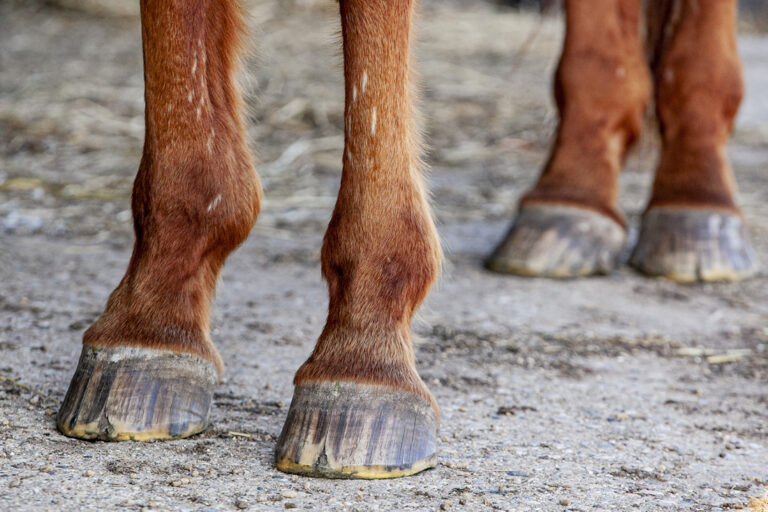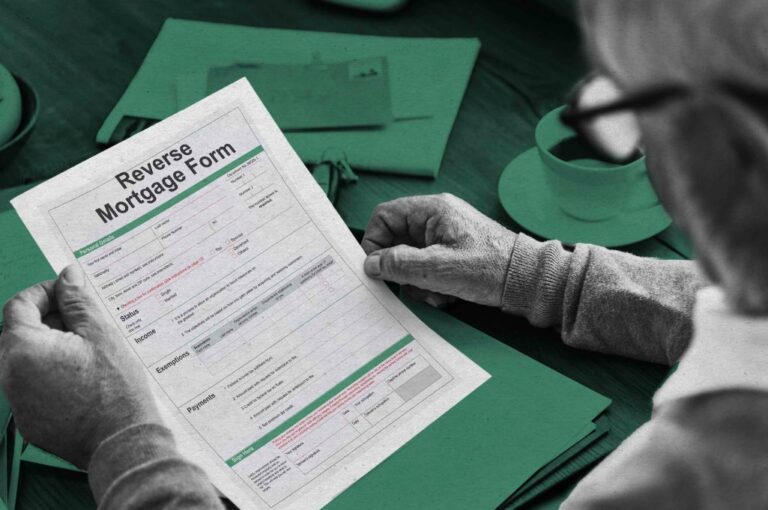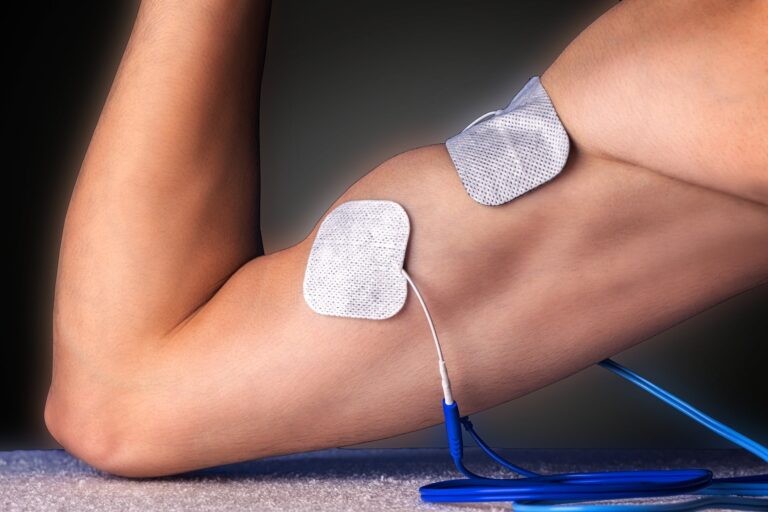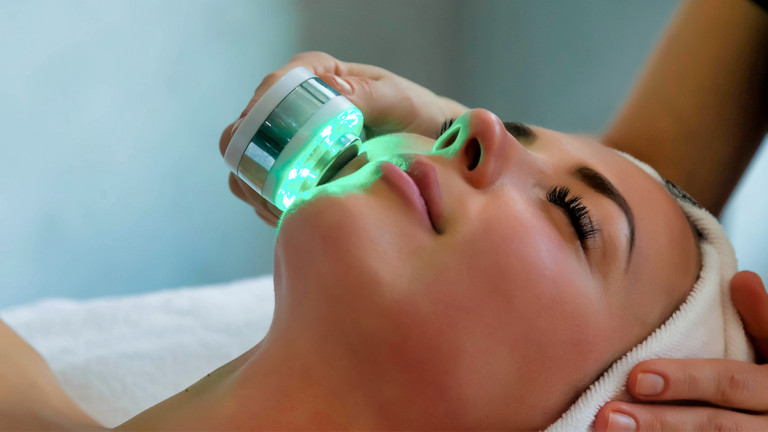Horse owners and caretakers understand the importance of hoof health in equines. A horse with poor hoof condition can face a myriad of issues, from lameness to more severe health problems.
While external care such as regular trimming and proper shoeing is crucial, internal factors, particularly nutrition, play a significant role in maintaining strong and healthy hooves. This article delves into the dietary essentials and specific nutrients vital for integrity and suggests practical feeding strategies to enhance hoves health.
The Connection Between Diet and Hoof Integrity
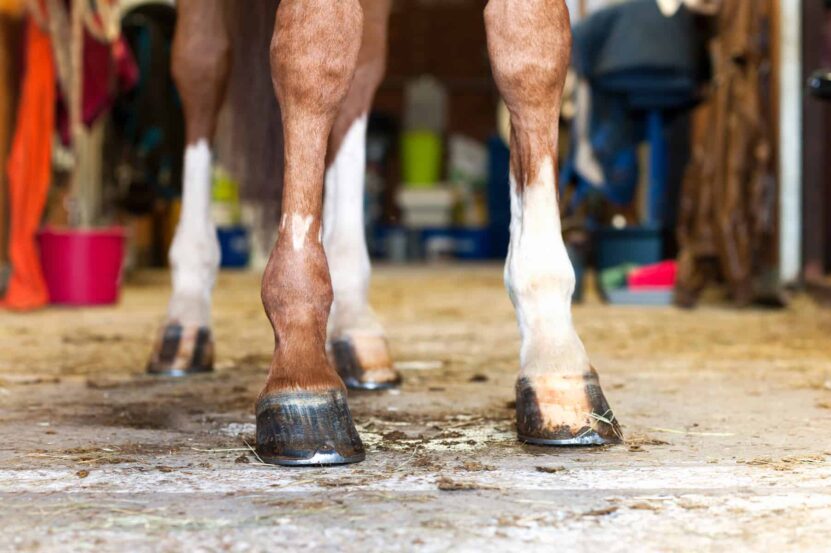
The condition of a horse’s hooves is a direct reflection of its overall health, especially its nutritional status. Hooves, primarily composed of keratin, require a balanced diet rich in specific nutrients to maintain their strength and resilience. An imbalance or deficiency can lead to weakened hooves, making them more susceptible to cracking, splitting, and other disorders.
Key Nutrients for Hoof Health
Several nutrients are fundamental for hoof strength and quality. These include:
- Protein and Amino Acids: Quality protein, especially containing essential amino acids like lysine and methionine, is vital for keratin production, the primary component of the hoof wall.
- Biotin: This B-vitamin is often touted for its role in improving hoof hardness and growth. Feeding biotin supplements can improve hoof quality, especially in horses with brittle or weak hooves.
- Minerals: Minerals such as zinc and copper are integral to hoof health. They are involved in keratin formation and overall integrity. Calcium and phosphorus also play a role in maintaining structure.
- Fats and Oils: Essential fatty acids, found in sources like flaxseed, help improve hoof quality. They aid in maintaining moisture balance in the hoof, preventing dryness and cracking.
To further enhance health, consider exploring high-quality supplements like those available at Best Hoof. These supplements can provide a convenient way to ensure your horse receives the essential nutrients they need for strong and resilient hooves. Learn more at https://besthoof.com/product/best-hoof/.
Practical Dietary Strategies
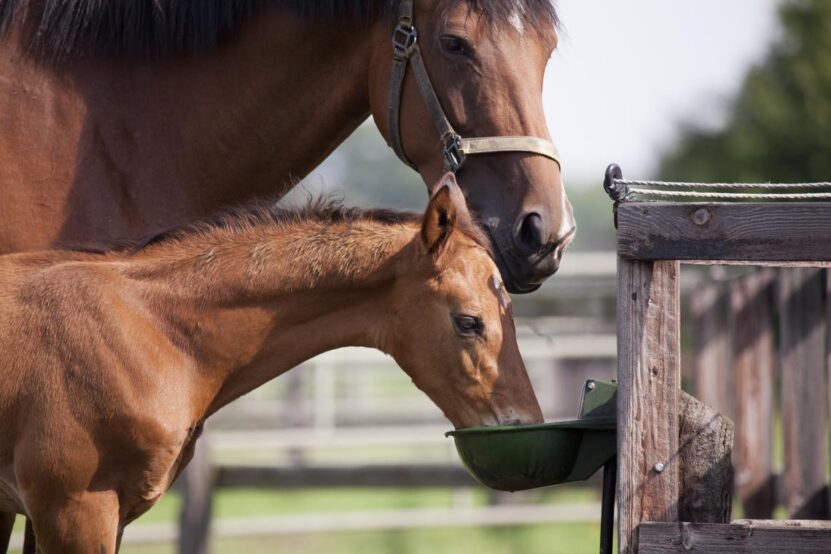
Implementing a balanced diet is key to healthy hooves. Here are some practical tips:
- Forage First: High-quality forage should form the basis of a horse’s diet. It provides essential nutrients and promotes gut health, indirectly supporting health.
- Controlled Grain Feeding: While grains are a good energy source, excessive grain can lead to hoof problems. Controlled and balanced grain feeding is necessary.
- Supplement Wisely: Supplements should only be used to fill gaps in the diet. Over-supplementing can cause imbalances and harm hooves health.
Special Diets for Specific Hoof Problems
Horses with specific problems might need tailored diets. For instance, horses with laminitis require a low-starch, high-fiber diet. It’s crucial to consult with a veterinarian or equine nutritionist to address these specific needs.
Seasonal Adjustments in Diet
The dietary needs of horses change with seasons. In winter, additional fat sources might be beneficial to maintain hoof moisture, while in the growing season, the focus should be on providing adequate minerals and vitamins through fresh forage.
Monitoring and Adjusting the Diet
Regular monitoring of hoof condition is essential. Changes in diet should be made gradually, and the effects should be observed over time. Regular consultation with equine nutrition experts can help in making the right dietary adjustments.
Impact of Lifestyle on Hooves
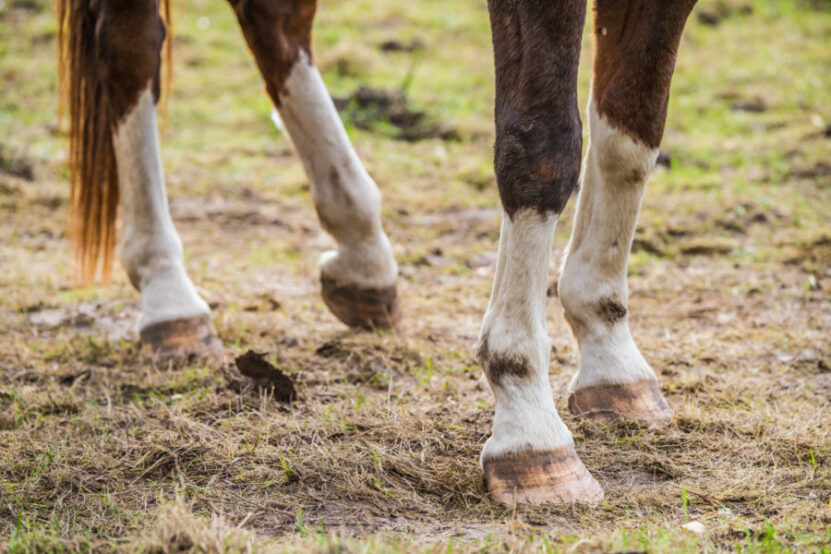
In addition to diet, a horse’s lifestyle has a significant impact on health. Regular exercise, proper stable conditions, and appropriate turnout are just as important as nutritional factors. Exercise promotes blood circulation, essential for growth and health. Moreover, the living environment should be clean and dry to prevent hoof diseases like thrush.
Role of Hydration
Hydration plays a pivotal role in maintaining hoof elasticity and strength. Insufficient water intake can lead to dry, brittle hooves. Ensuring that horses have constant access to clean, fresh water is as crucial as providing a balanced diet.
The Importance of Regular Veterinary and Farrier Care
Consistent care from a veterinarian and a farrier is integral to hoof health. Regular check-ups can help identify nutritional deficiencies and hoof problems early on. A farrier can provide essential care like trimming and shoeing, which are vital for maintaining hoof shape and health.
Common Misconceptions About Hooves Care and Nutrition
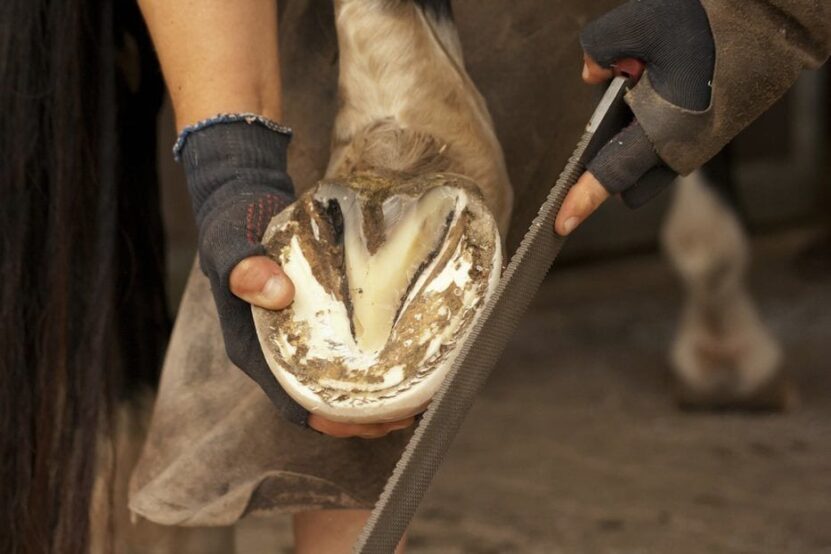
There are several myths surrounding care and nutrition. One common misconception is that supplements alone can fix hooves’ problems. While supplements are beneficial, they work best in conjunction with a balanced diet and proper hoof care. Another myth is that horses with hoof problems require a drastically different diet. In most cases, a slight adjustment to the existing diet is sufficient.
Feeding for Prevention vs. Feeding for Treatment
Prevention is always better than cure, especially in hooves care. A diet that supports overall health can prevent many problems. However, when treating existing hooves issues, specific dietary changes and supplements might be necessary. It’s important to distinguish between these two approaches and adapt the diet accordingly.
The Role of Forage Quality in Hoof Health
The quality of forage plays a critical role in hoof health. Poor-quality hay or grass can lack the essential nutrients necessary for healthy hooves. It’s crucial to ensure that the forage is not only high in fiber but also rich in necessary vitamins and minerals. Regular analysis of forage quality can help in making informed decisions about supplementary feeding.
Balancing Energy Needs with Hoof Health Requirements
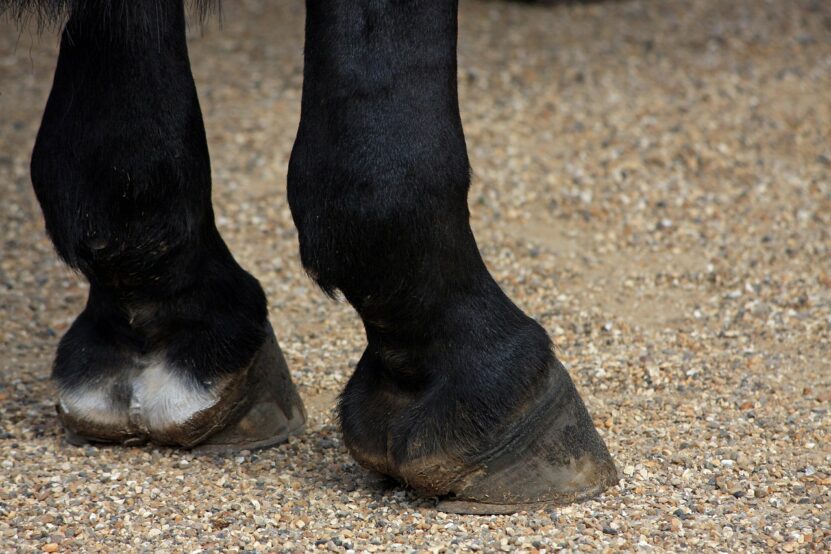
High-performance horses have increased energy needs. However, fulfilling these needs without compromising hoof health can be a challenge. High-energy diets, often rich in grains, can lead to issues like laminitis if not managed correctly. Balancing the diet with adequate forage, controlled grain intake, and supplements can help in meeting both energy and hoof health requirements.
End Note
Strong, healthy hooves are essential for a horse’s well-being and performance. Achieving this involves more than just focusing on the hooves themselves; it requires a holistic approach that includes proper nutrition, lifestyle management, and regular care.

